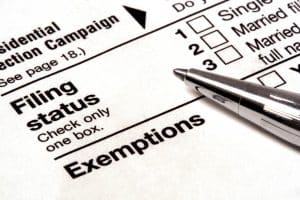Fiduciary Duties Attorney Providing Assistance to clients in Ocean and Monmouth County, NJ
Guiding clients with financial-related issues in Point Pleasant, Toms River, Jackson, Brick, Spring Lake, Howell, Sea Girt, Ocean County, and Monmouth County

What does it mean to act on behalf of the estate and to have fiduciary duties?
A fiduciary duty means that the Executor must act in good faith on behalf of the estate. Similarly, the executor must act competently in carrying out the duties of the estate. The duties of the executor can be anything that is necessary when administering the estate, often including:
- Selling property
- Paying personal income taxes
- Paying estate taxes
- Notifying beneficiaries and next of kin of the passing of the testator and the presence of a will
- Disbursing bank accounts
- Dividing or selling assets
- Cashing or selling stocks and bonds
- Paying debts and expenses
- Carefully accounting the estate expenses
- Contacting insurance companies and dispersing benefits in accordance with the will
- Obtaining appraisals of property
The duties of the executor can be vast and time-consuming and being diligent throughout may be difficult for some people, depending on the circumstances. Regardless of the difficulty and time, the executor must actively participate in the proper administration of the estate.
Proper administration of an estate
To properly administer the estate, you must become familiar with what you must do. The first step is to get the Will and go to probate. After being named the executor, you then gather a list of all the assets and debts. The bills should be paid and the assets kept for safe-keeping.
Accurate record-keeping and accounting of the bills/assets can safeguard you against claims of embezzlement or wrongdoing. Keep a careful accounting of all bills paid, receipts, bank statements, checks written and received, taxes filed, and correspondence. Do not haphazardly throw important documents in a box, your car, or bag full of junk mail, as these documents could make the difference if someone accuses you or improper conduct when handling the estate.
Above all, the fiduciary/executor has the absolute obligation to protect the assets of the estate for the benefit of the named beneficiaries. In other words, the fiduciary must do what the deceased person wanted and noted in their Will, not what the fiduciary wants for any reason. As such, the executor/fiduciary should avoid anything that could be considered self-dealing or unfair gain contrary to that of the will.

Contact an Experienced Toms River NJ Attorney
Hiring an attorney can take the emotional burden from an executor and provide step-by-step instructions on what must be done. Conversely, attorneys can help protect you if you are a beneficiary who believes that the fiduciary has failed at his fiduciary responsibilities. Our attorneys can assist in the proper administration of an estate and we can guide you through the process based on your situation.
To get in touch with Peter J. Bronzino regarding your financial-related case in an initial and confidential consultation, click here to access our online form or through our Brick, NJ office at (732) 812-3102.








